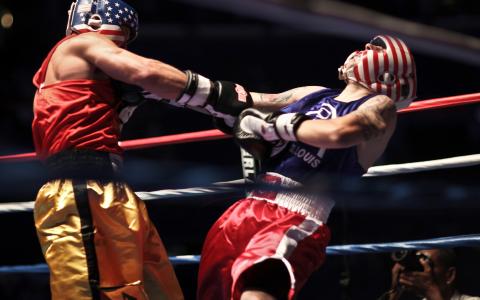
(Fortune) - Pershing Square founder Bill Ackman has warned that his investment firm’s rival, Icahn Enterprises, could prove to be another Archegos, a hedge fund whose spectacular 2021 implosion caused losses of over $10 billion for Wall Street banks.
In early May, Hindenburg Research accused the holding company and its famous controlling owner, Carl Icahn, of employing “Ponzi-like” economics by paying off existing retail investors with unsustainably large dividends funded by new investors buying its stock exchange-listed depositary units.
Ever since the allegations were leveled by Hindenburg, which stated from the outset it was selling Icahn Enterprises short in a bet its price would fall, the holding has shed half its market value and is now worth $8.9 billion—less than Ackman’s $10 billion Pershing Square.
On Wednesday, the Pershing Square billionaire said he was “fascinated” by the accusations and in particular the discovery of personal loans taken out by Icahn and secured against the depositary units in his eponymous investment holding, since it could prove highly unstable.
This, he said, "reminds me somewhat of Archegos", where Wall Street's prime brokers were left in the dark about just how much money their over-leveraged client was borrowing around town.
“If Icahn were to sell any shares, the stock would likely drop precipitously as the overhang of additional sales and the further resulting loss in confidence would catalyze other shareholders to exit before the deluge," Ackman wrote.
Bill Hwang’s Archegos family office collapsed like a house of cards two years ago, resulting in numerous banks losing money, most notably Credit Suisse. The Zürich lender, caught holding the proverbial bag, suffered a $5.5 billion hit that helped cement its status as Europe’s worst-managed bank and proved a key contributor to its ultimate downfall in March.
Hwang is now being prosecuted for fraud by the Securities and Exchange Commission, which warned that even a single hedge fund like Archegos “can have far-reaching implications for investors” given enough banks willing to lend it money for speculation.
Icahn Enterprises could not immediately be reached by Fortune for comment.
Ackman said he was neither long nor short on Icahn Enterprises, but merely was watching with interest from the sidelines how Icahn's precariously financed margin loans would play out.
“All it takes is for one lender to break ranks and liquidate shares or attempt to hedge, before the house comes falling down,” he wrote. “The patsy is the last lender to liquidate.”
The two arch-rivals have a long history of nursing mutual animosities. Their feud began almost twenty years ago, when Ackman sued Icahn for failing to live up to the terms of their Hallwood Realty deal.
In January 2013, the activist investors then famously hurled insults at each other live on air over Ackman’s $1 billion Herbalife short in what CNBC dubbed the “Battle of the Billionaires”. A year later they ended their quarrel in a demonstrable show of reconciliation, but it seems as if their feud only received a very thin burial.
Icahn blames Federal Reserve's QE for his failed bets
On May 10, Icahn Enterprises reported it swung to a quarterly net loss of $270 million from a profit of $323 million a year earlier amid a negative return of 4.1%.
Despite the poor Q1 performance, the sharp drop in the price of its depositary units and, most importantly, Hindenburg’s allegations of impropriety, CEO David Willets ended the investor call after just 12 minutes following his team’s scripted remarks. “Apparently there are no questions, we thank you for your time,” he said.
Hindenburg went on the attack once more the following day after filings revealed that Icahn had now pledged nearly 203 million units against his margin loans, up from 181 million previously, representing a "near-term critical threat“ to unitholders.
“The deal Icahn is making to retail investors is, essentially, ‘buy ~$9 worth of value for ~$32 and I’ll give you back $2 of your own money per quarter, for free’,” it wrote, referring to the quarterly dividend payout. The price of Icahn Enterprises' depositary units have since further declined, closing on Wednesday just below $24 each.
A week later, an analysis by the Financial Times showed Icahn’s investment portfolio had in fact lost money ever year since 2014. In the past six year alone, the newspaper found $6 billion in gains failed to offset $8.8 billion from losses on bearish bets.
Speaking to the FT, Icahn acknowledged he had made mistakes and failed to heed his own advice and trading strategies that would have limited his losses. “I obviously believed the market was in for great trouble,” he explained, adding he was foiled by the Federal Reserve’s quantitative easing that helped bolster equity prices.
By Christiaan Hetzner



